Publications
Articles, publications, books, tools and multimedia features from the U.S. Institute of Peace provide the latest news, analysis, research findings, practitioner guides and reports, all related to the conflict zones and issues that are at the center of the Institute’s work to prevent and reduce violent conflict.
Syria’s Socially Mediated Civil War
Sheldon Himelfarb, the director of USIP’s PeaceTech Initiative, which sponsored the research, talked with Syria Deeply about his team’s process and findings.
A New Beginning in Tehran -- TIME Magazine
Robin Wright discusses her recent visit to Iran in TIME magazine.
In Afghanistan, an alternate approach to a security pact -- Washington Post Op-Ed
"U.S. officials are struggling again with Afghan President Hamid Karzai. After painful and prolonged negotiations, they concluded a draft bilateral security agreement last year that lays the foundation for leaving U.S. military forces in Afghanistan after 2014. It is expected to involve 8,000 to 10,000 U.S. troops with counterterrorism, training and other responsibilities in support of Afghan forces."
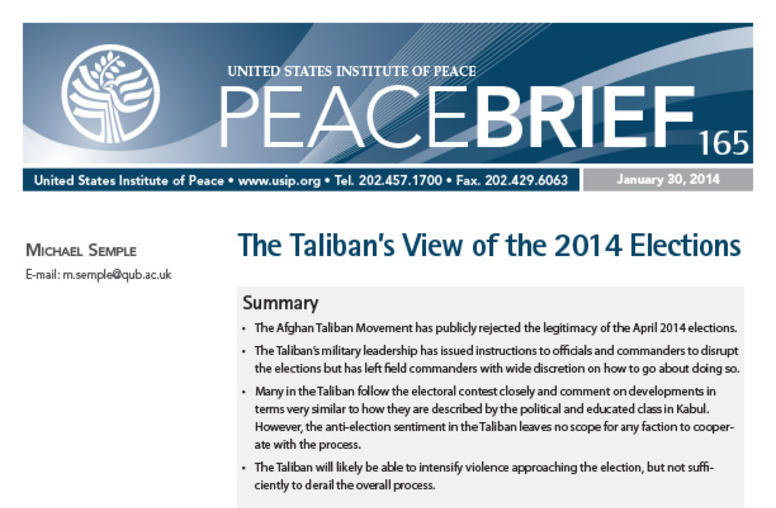
The Taliban’s View of the 2014 Elections
In this Peace Brief, author Michael Semple analyzes Taliban attitudes and intentions toward the 2014 elections and their ability to disrupt them based on the Taliban’s public statements, recent actions, and interviews with past and present members.

Compounding Uncertainty in Afghanistan
USIP’s Bill Byrd, Casey Johnson and Sanaullah Tasal explore the economic implications of the delay in signing the Bilateral Security Agreement between Afghanistan and the U.S.
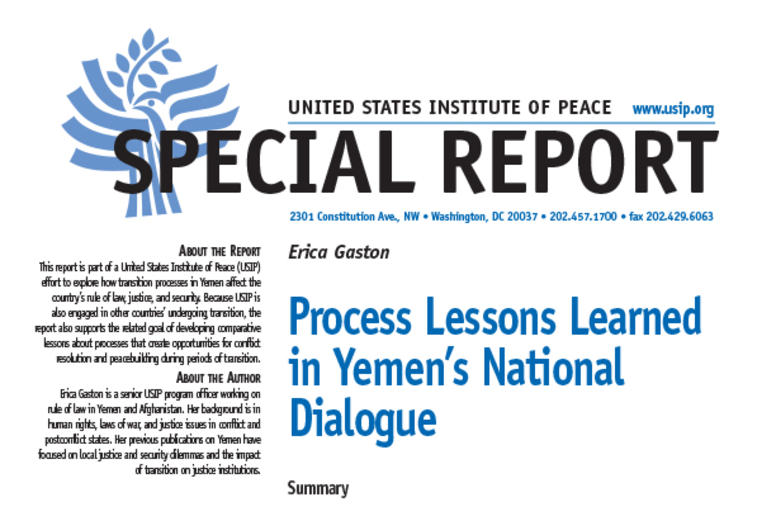
Process Lessons Learned in Yemen’s National Dialogue
Yemen’s national dialogue has been lauded as a model for other countries in transition. While it succeeded in convening a broad range of Yemeni society on a host of issues, difficult key issues were left unresolved. Other countries embarking on national dialogues should learn from Yemen’s experience that they must balance the scale of the forum, the weight of the agenda, and the impact on other transitional processes that may be sidelined by a dialogue.
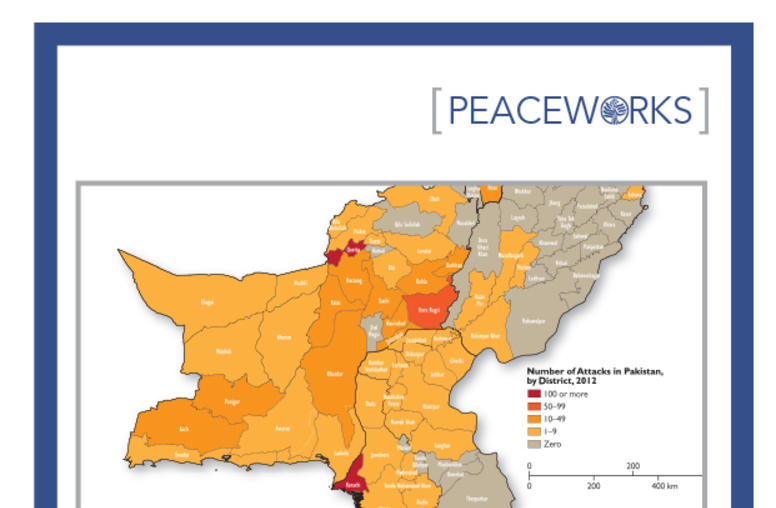
Mapping Conflict Trends in Pakistan
Over the past decade, violence has become endemic in many parts of Pakistan. This report examines the trajectory of violence and the range of conflicts in six troubled regions. The authors conclude that if existing socioeconomic conditions persist and the state continues to fail to deliver public services, justice, and security, Pakistan could face further escalation of violence and lawlessness.
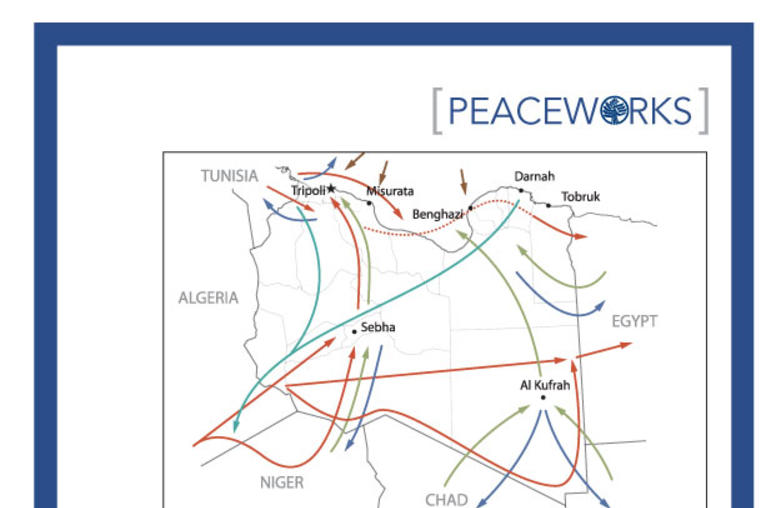
Illicit Trafficking and Libya’s Transition: Profits and Losses
As Libya emerges from forty years of autocratic rule, the criminal economy is undermining government efforts at state consolidation. This report maps the flow of weapons, migrants, drugs, and smuggled goods through Libya and details the interactions between armed groups who control illicit markets and local communities. The authors warn that efforts to beef up border control policing will not be sufficient. Combating organized crime in Libya requires a broader approach that will engage margin...
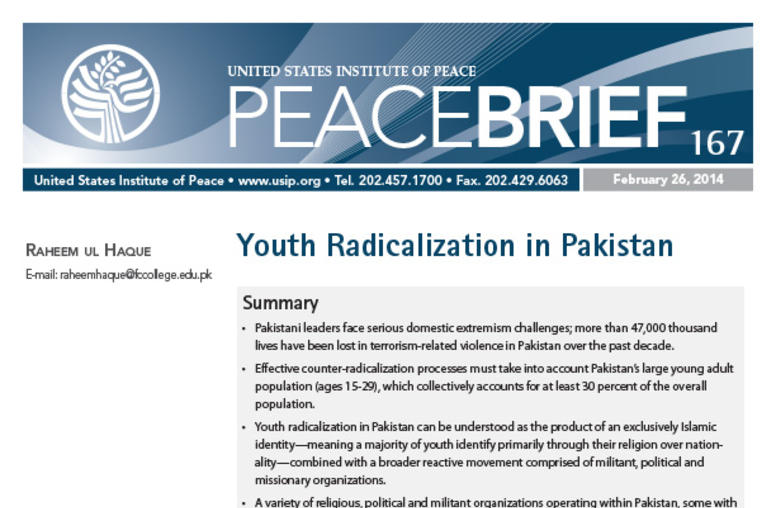
Youth Radicalization in Pakistan
Amid the serious threat of extremism within Pakistan’s large young adult population, author Raheem ul Haque explores the process of youth radicalization and recommends how policymakers can best confront the growing challenge.
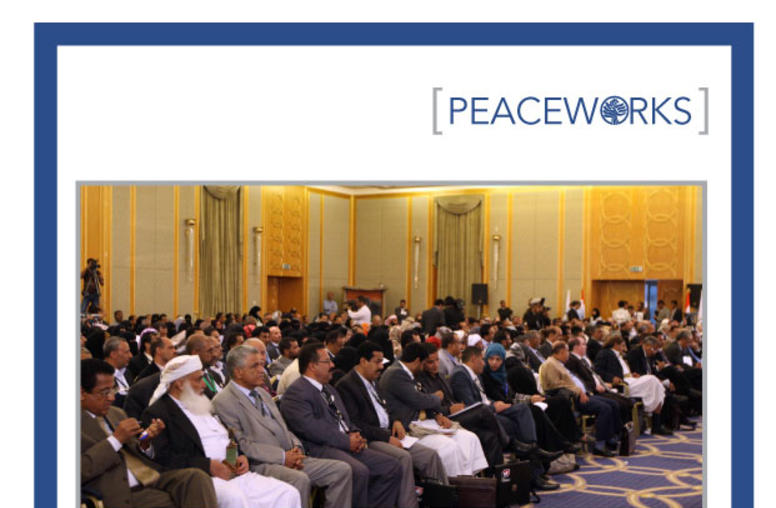
Yemen in Transition: Between Fragmentation and Transformation
A combination of a domestic balance of weakness and concerted international mediation efforts moved Yemen away from the brink of civil war. Yet it must still bridge deep divisions among its many factions if its negotiated transition is to last.